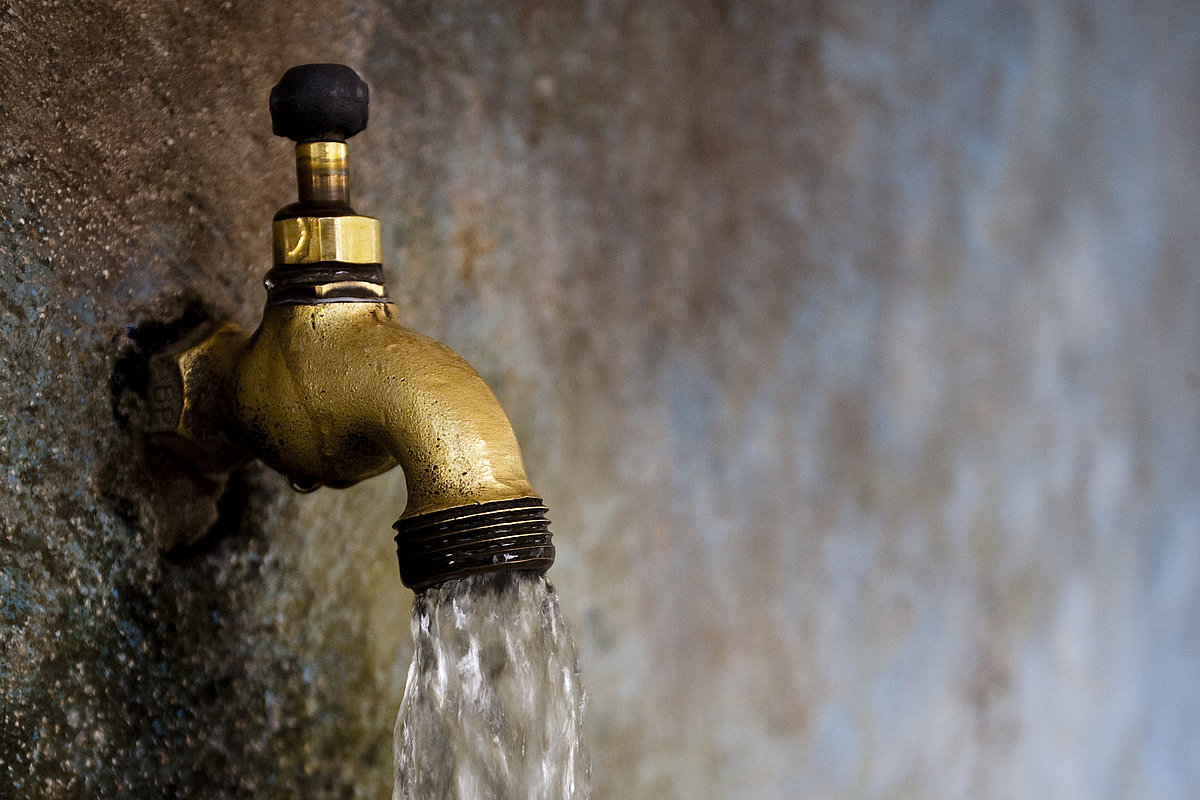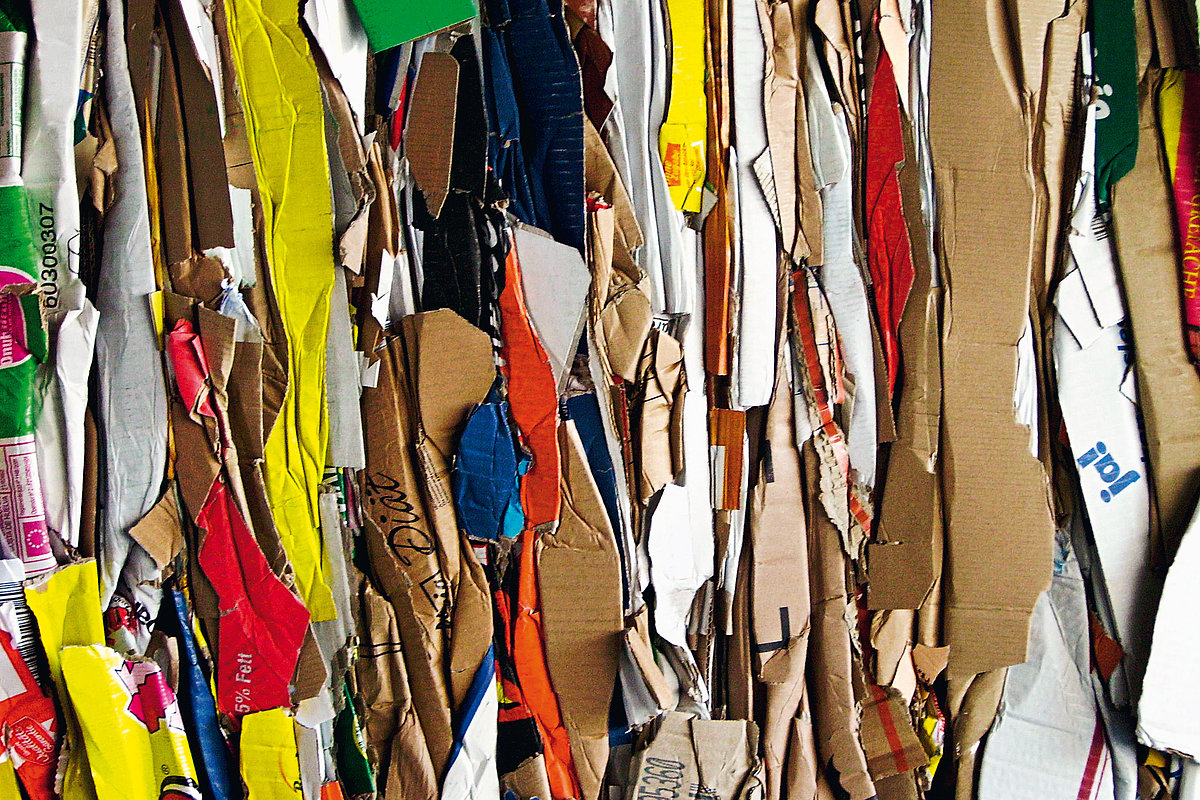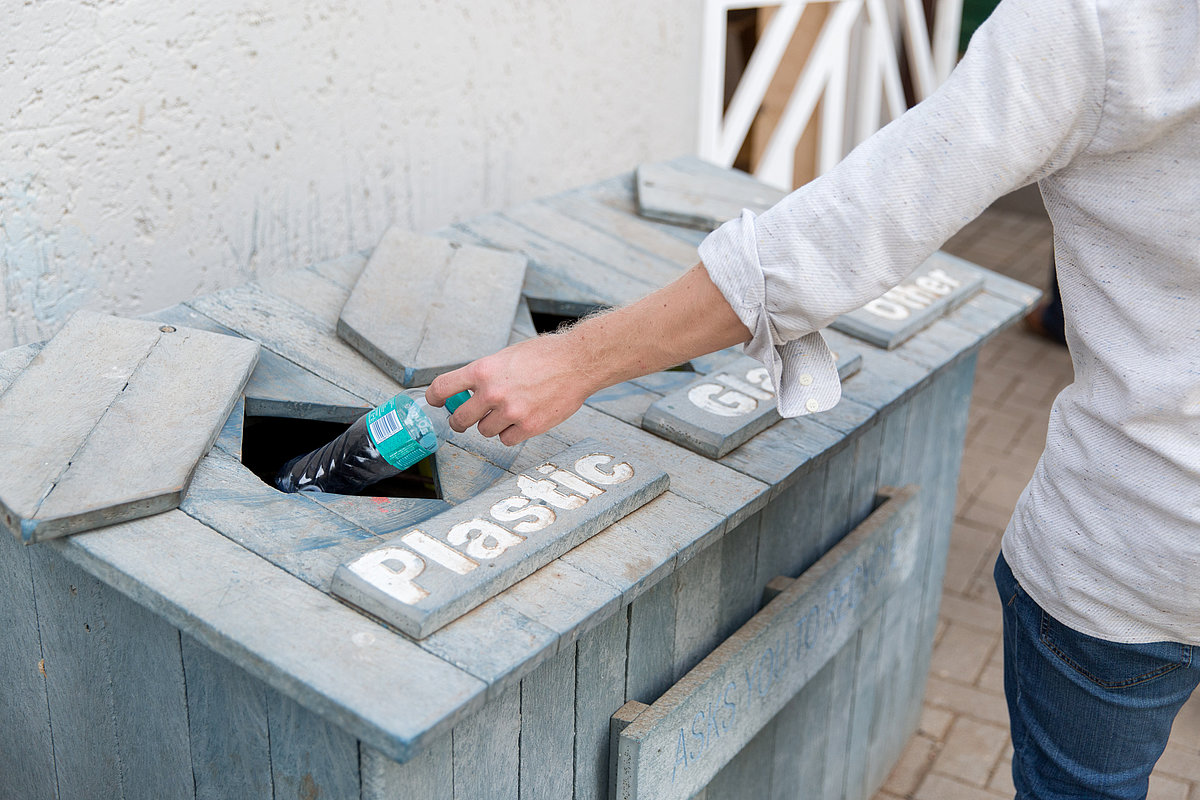Further reducing our consumption of resources
Saving drinking water, using rainwater, avoiding contamination
We continually strive to conserve resources, focusing in particular on water, paper and waste. GIZ wants to reduce its annual water consumption in Germany by 2 per cent per capita. As a result of our growing workforce, absolute water consumption increased by 22 per cent in 2019 relative to 2017. However, the per capita consumption has declined by 7 per cent compared with 2017 and was 9,704 litres per employee in 2019.
We have installed a large number of water-saving devices at our locations in Germany. However, because of the Legionella regulation and the additional flushing required, we have limited potential for reducing water consumption. Nevertheless, by using rainwater from cisterns in our new buildings, we intend to reduce water consumption and also keep it at a low level in our existing buildings.
We protect the environment by using environmentally friendly cleaning agents with strict quality labels.

(© GIZ / Britta Radike)
In many of our partner countries, water is a particularly scarce asset that requires special protection. At the same time, we find that collecting the relevant data is particularly time-consuming and that available data is incomplete, for instance, due to defective or inaccurate water meters in our offices.
1 The data for Germany corresponds to the balance on 18 November 2020. Due to better availability of data, some figures have been updated for 2018 and 2019.
2 The assessment system for other countries was expanded in 2019 and previous publications may show other data. Figures for 2017 are based on data from 2016 and 2017. Up until that point, environmental data was assessed on a biannual basis. Since 2018, environmental data has been collected annually in all CSH countries. From 2019 onwards, a new extrapolation system will also be used.
Reducing paper consumption
Paper is an essential resource that we use every day in the office. While it is not always possible to dispense with paper entirely, we have significantly reduced paper consumption in our offices worldwide since 2017 and are constantly working to reduce it further.
In 2019, some 95 per cent of the paper we used in Germany was recycled paper with the Blue Angel seal of approval. We also use low-energy printers. Our service provider uses our empty ink cartridges to manufacture new ones.

At around 15 per cent, the average share accounted for by recycled and environmental paper outside Germany in 2019 was higher than in the previous year. In these countries, using recycled paper like in Germany is only possible in some cases, as it is often difficult or even impossible to purchase locally.
1 The data for Germany corresponds to the balance on 18 October 2020. Due to better availability of data, some figures have been updated for 2018 and 2019.
2 The assessment system for other countries was expanded in 2019 and previous publications may show other data. Figures for 2017 are based on data from 2016 and 2017. Up until that point, environmental data was assessed on a biannual basis. Since 2018, environmental data has been collected annually in all CSH countries. From 2019 onwards, a new extrapolation system will also be used.
Avoiding waste: recycling and reuse instead of disposal
We aim to generate as little waste as possible and to achieve a high level of reuse. Since 2013, a public-benefit IT service provider has been reprocessing our discarded IT equipment and subsequently marketing it as used equipment. Defective devices are disposed of in an environmentally friendly and professional manner.
During the procurement process too, we ensure that product packaging generates as little waste as possible, which is why we prefer reusable packaging. All packaging must meet our environmental requirements or be taken back by the supplier. We attach great importance to the repairability of purchased goods. There are collection bins for recycling used highlighters and markers at all our locations in Germany, especially at our educational centres.

We developed a waste strategy in 2016. Since then, we have included in our own records all waste that, for example, was previously attributed to our canteen service providers. In 2019, our total volume of non-hazardous waste in Germany was 184 kg per employee. Waste is not recorded in the CSH, which is why no data is collected for this area in other countries.
1 The data for Germany corresponds to the balance on 18 November 2020. Due to better availability of data, some figures have been updated for 2018 and 2019.